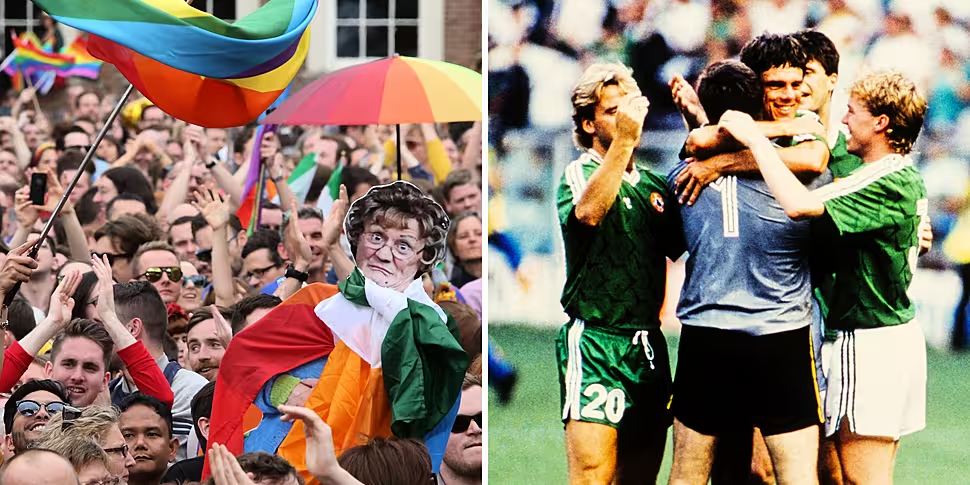“The other nineteen better be good,” quipped Tony Cascarino when Kieran Cuddihy interviewed him on The Hard Shoulder about Italia ‘90 making it onto the shortlist of Ireland’s twenty greatest moments.
So, are they good?
That’s a question with an answer that can only be subjective. When we set out to plan this project for Newstalk, we were aware that any shortlist we came up with would prove controversial.
Inevitably, everyone interprets our history in different ways, but what we tried to create was a list that captured the diversity of our social, political, cultural and sporting national life. I hope that we have been successful in doing this.
What is Ireland's greatest moment?
Have your say and vote now 🔽
— NewstalkFM (@NewstalkFM) October 23, 2022
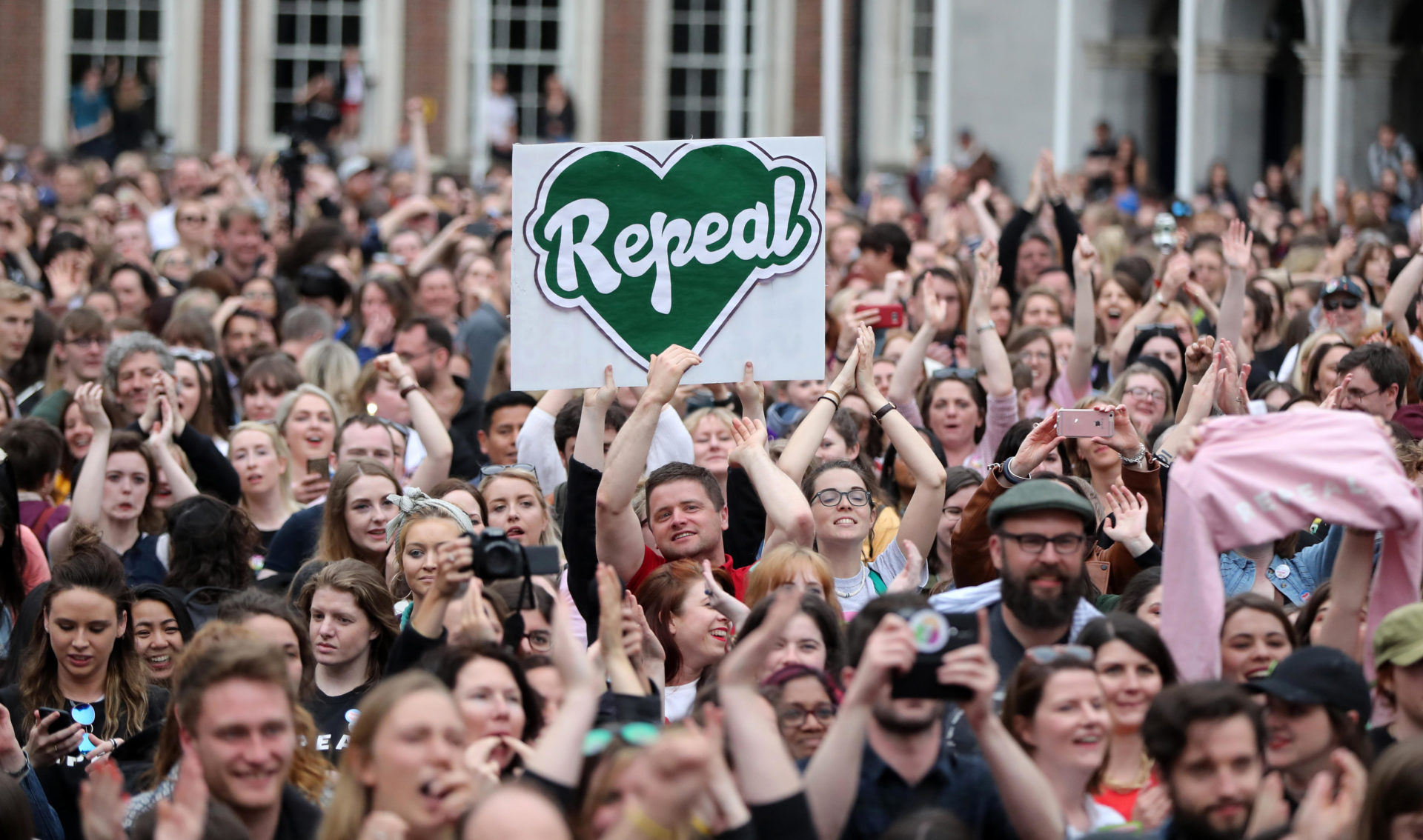 Crowds in Dublin Castle as Ireland repeals the Eighth Amendment. Image: Laura Hutton/Alamy
Crowds in Dublin Castle as Ireland repeals the Eighth Amendment. Image: Laura Hutton/AlamyThe way we understand the ‘greatest’ part of Ireland’s Greatest Moments is important because, just like Time Magazine’s Person of the Year, we’re not necessarily suggesting that the moments we have chosen are ‘great,’ but rather that they are significant or influential.
For example, the inclusion of Fine Gael and Fianna Fail entering a coalition in 2020 stands out for some as a peculiar inclusion on the list.
The fact is, it was an historic event. It represented the end of a particular brand of civil war politics that had defined most of the past hundred years in this country.
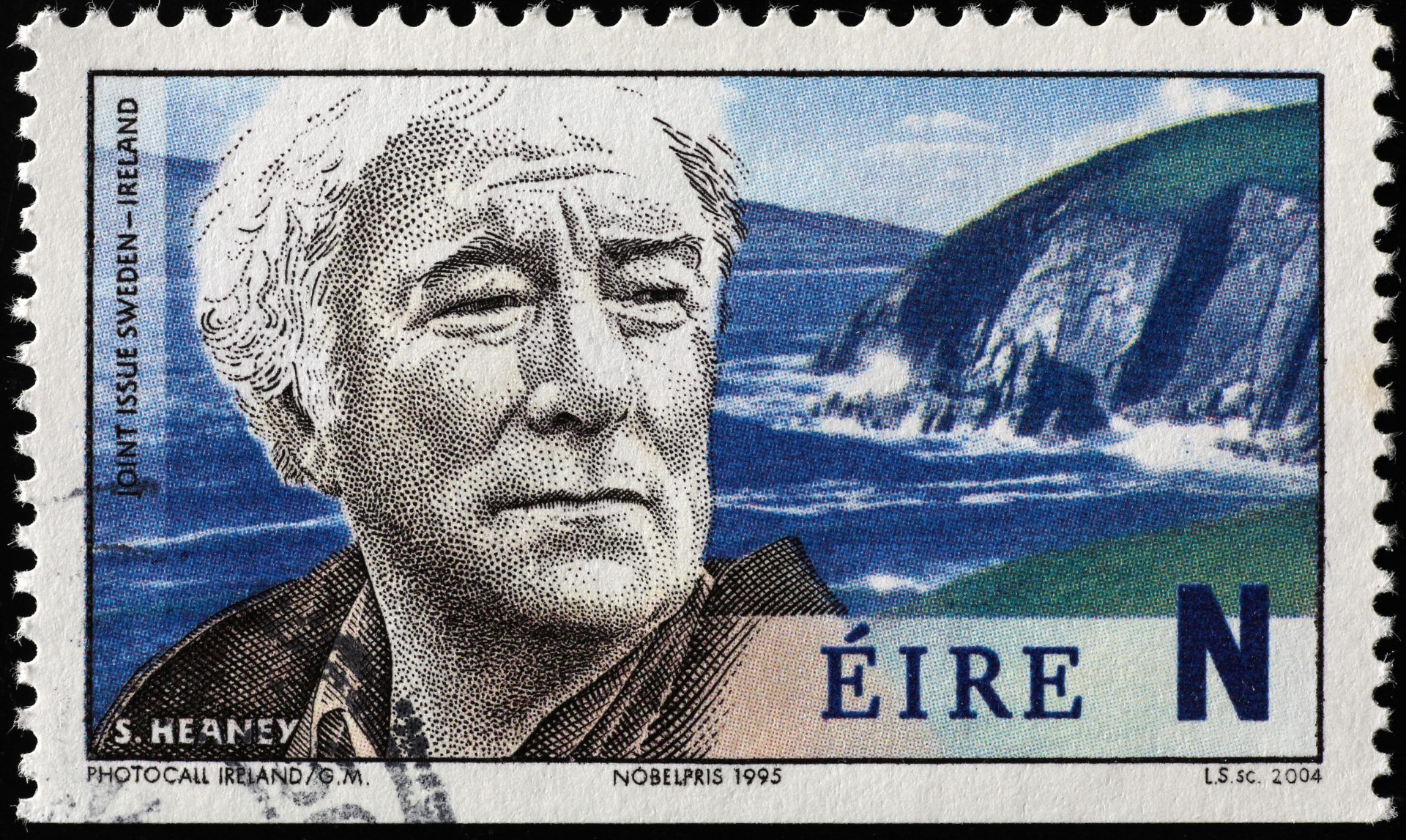 Nobel Prize-winning poet Séamus Heaney on an Irish postage stamp
Nobel Prize-winning poet Séamus Heaney on an Irish postage stampEqually, the inclusion of the Saipan Incident of 2002 can hardly be described as something positive for the country, but it was ‘great’ in the sense that it had significant consequences for the team, the manager and the country at large.
There is always a danger with a poll like this that our bias bends to our more recent history.
For example, why is the Marriage Equality referendum of 2015 included but the decriminalisation of homosexuality in 1993 is omitted?
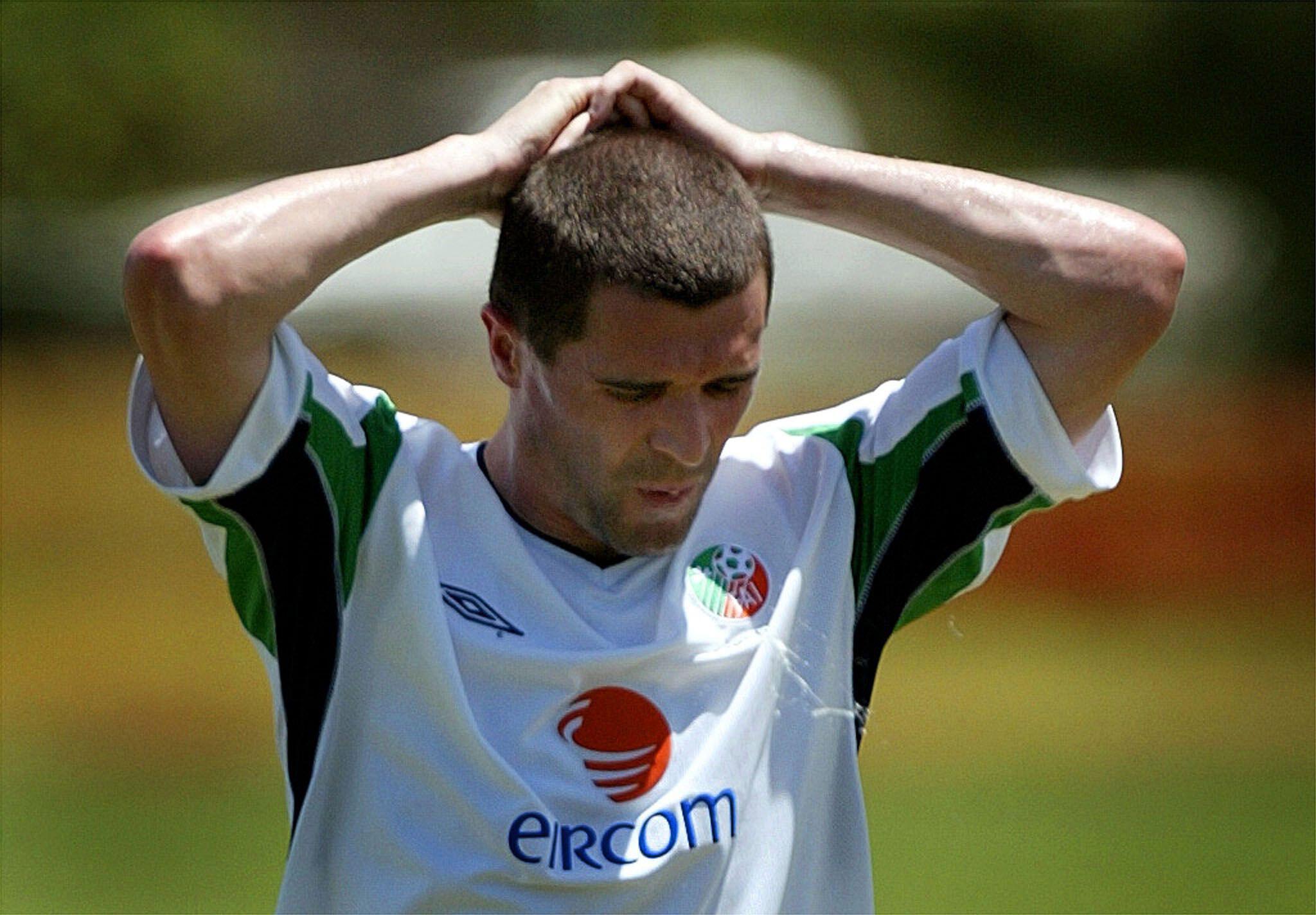 Republic of Ireland captain Roy Keane holds his head after a sprint during a training session in Saipan, 23-05-2002
Republic of Ireland captain Roy Keane holds his head after a sprint during a training session in Saipan, 23-05-2002We were acutely aware of this challenge when we were building the shortlist; however, we felt that the 2015 plebiscite represented the culmination of many generations’ struggle for equality and that the important events of 1993 were implicitly included in the referendum’s result.
Through our consultations with multiple experts, we tried to ensure that the significant moments from the first 50 years were well represented.
The inclusion of landmark events such as the beginning of rural electrification in 1946 and the announcement of free secondary school education in 1966 were both things which were transformative and I hope they get lots of votes, even though they require us all to make the effort to look in our collective rearview mirror.
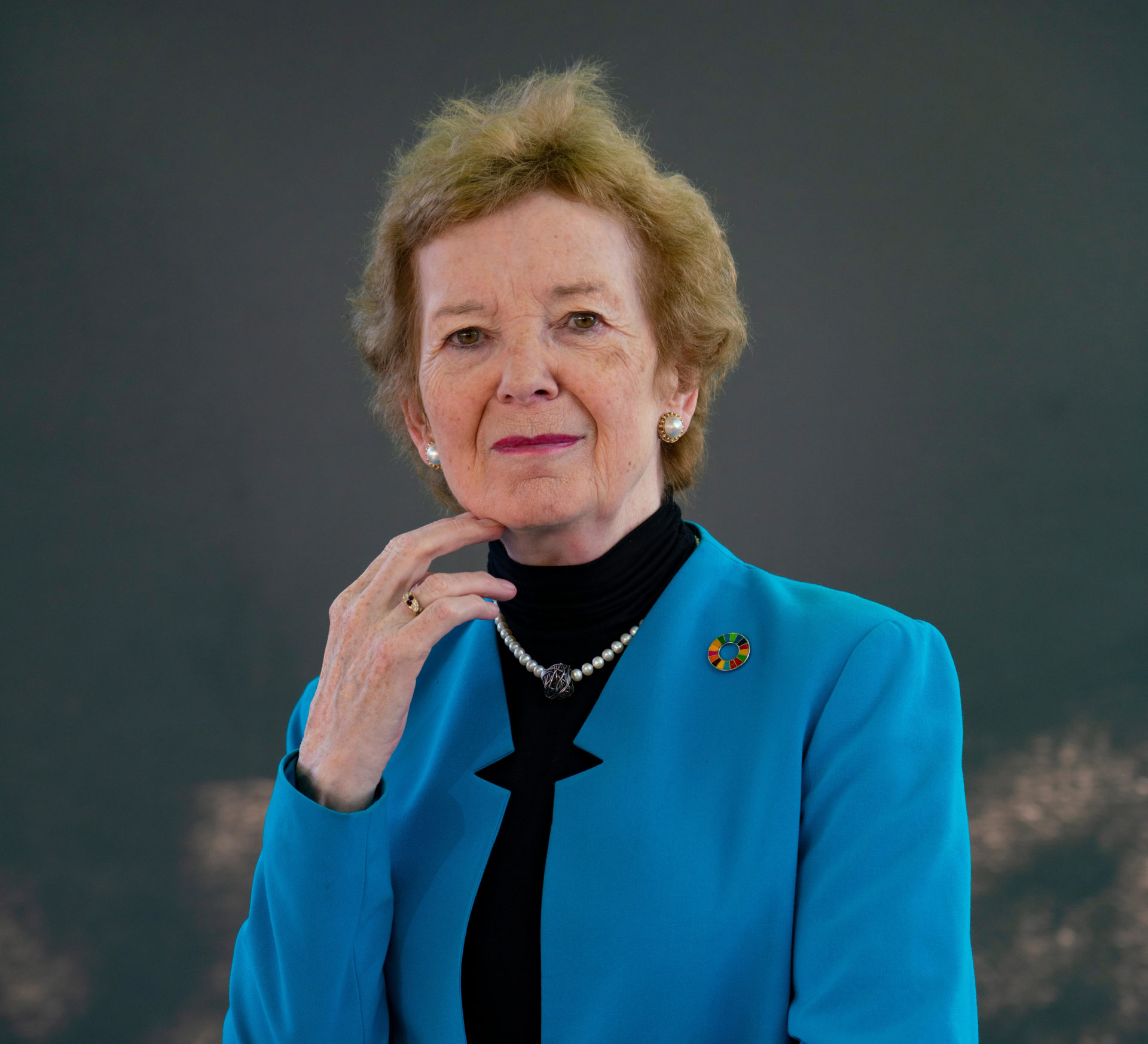 File photo of Mary Robinson, Ireland’s first female president. Image: Iain Masterton / Alamy
File photo of Mary Robinson, Ireland’s first female president. Image: Iain Masterton / Alamy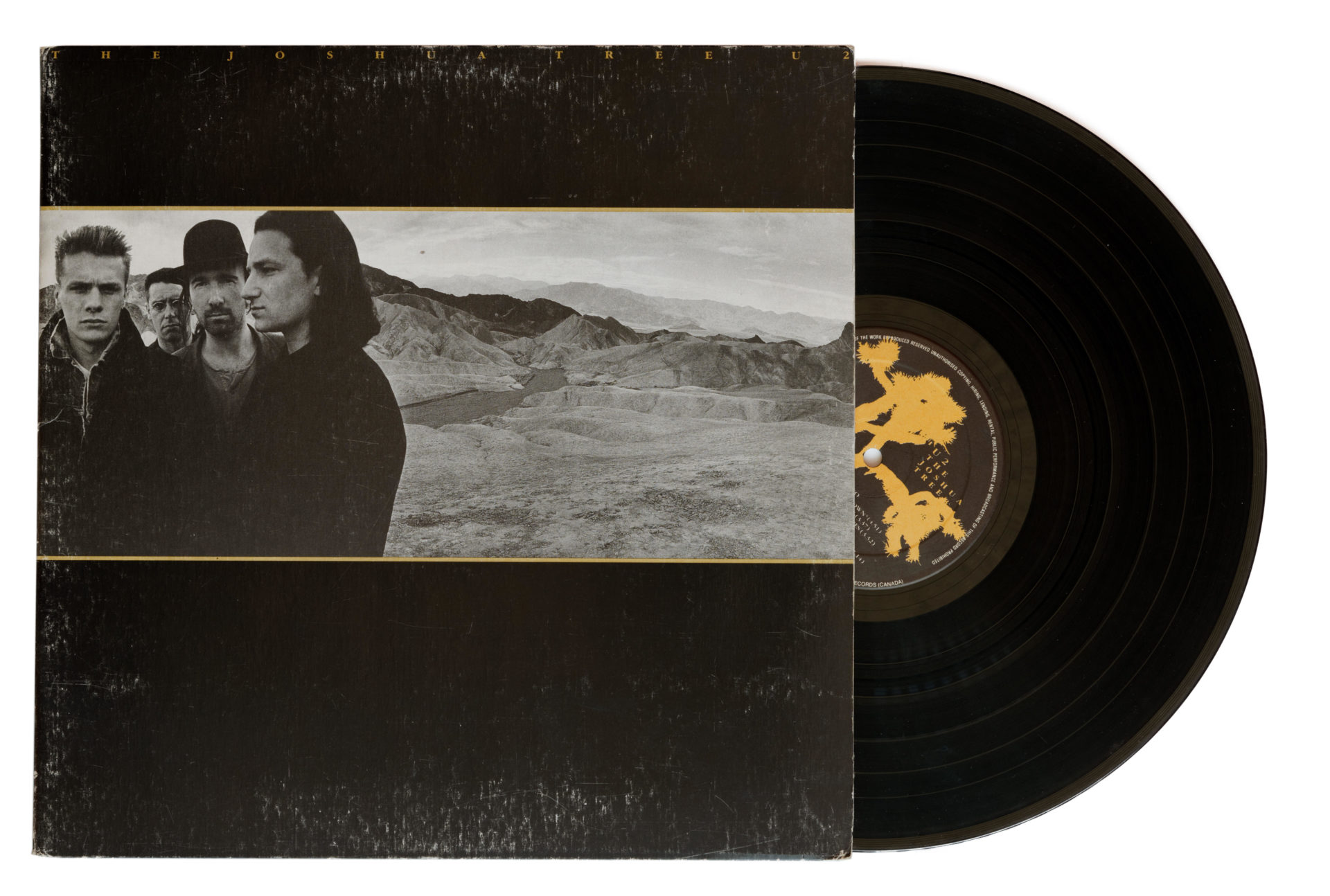 U2 Joshua Tree album. Image: CBW / Alamy
U2 Joshua Tree album. Image: CBW / AlamyThe use of the word ‘moment’ is significant in this poll. Perhaps nothing invokes this idea better than Riverdance at Eurovision in 1994.
When Jean Butler and Michael Flatley exploded from the wings of the Point Depot at the contest on April 30th 1994, it felt as if the entire nation drew its breath.
It was a moment of pride in ourselves on the world stage; a sense of a rebirth of the way Irish culture is understood externally.
Similarly, the David versus Goliath victory of Munster over the All Blacks in 1978 also seems to tap into the idea of a shared moment of pride, something that happened in an instant but lives long in the memory.
Above all, this project has generated a fascinating and important debate about what we choose to remember as a nation, how we look at our history and shows us what we can learn from our past.
You can see the shortlist and vote for Ireland's Greatest Moment here.


